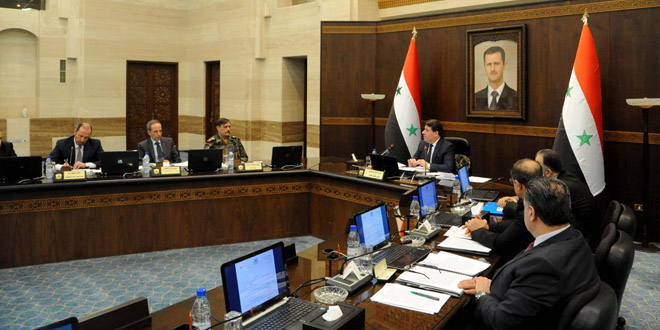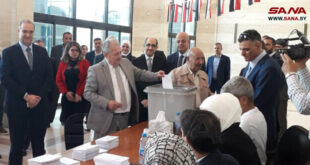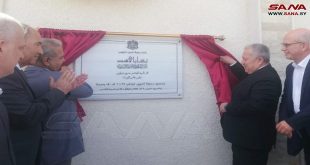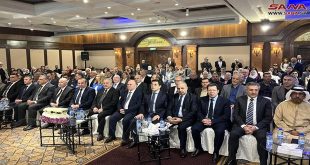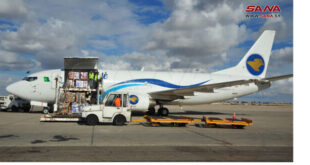Damascus, SANA – In its weekly session on Tuesday, the Cabinet discussed the challenges facing the Syrian Pound and measures to stabilize it, as well as mechanisms to monitor prices in markets.
Chairing the session, Prime Minister Wael al-Halaqi said that there is no economic crisis in Syria but rather an organized economic war that aims at weakening the country as a whole and the Syrian Pound, adding that the government is working to confront this through a number of measures and cooperating with civil society, businessmen, and media outlets.
On services affairs, Premier al-Halaqi instructed on the relevant ministries to take punitive measures against monopolists and profiteers, calling on concerned sides to monitor market prices, and also stressed the need to monitor the private internal transport companies in Damascus.
He also called on the Health Ministry to look into the existing of smuggled medicine in the markets and to prevent illicit trafficking in pharmaceuticals, reviewing the government’s efforts to revitalize the public industrial sector.
In turn, Higher Education Minister Mohammad Amer Mardini briefed the Cabinet on the results of admitting students in the pre-med year for 2015-2016.
The Cabinet then approved issuing the financial system of the Local Production and Export Support and Development Agency, in addition to reviewing a letter from the Education Ministry requesting to extend the Cabinet’s approval for using some school buildings located in Damascus after school hours by Syrian private universities for the academic year of 2016-2017.
The Cabinet also discussed a memorandum from the Ministry of Finance on the mechanisms need to be adopted to curb smuggling operations through border crossing points.
Manar al-Freih / Hazem Sabbagh
 Syrian Arab News Agency S A N A
Syrian Arab News Agency S A N A
